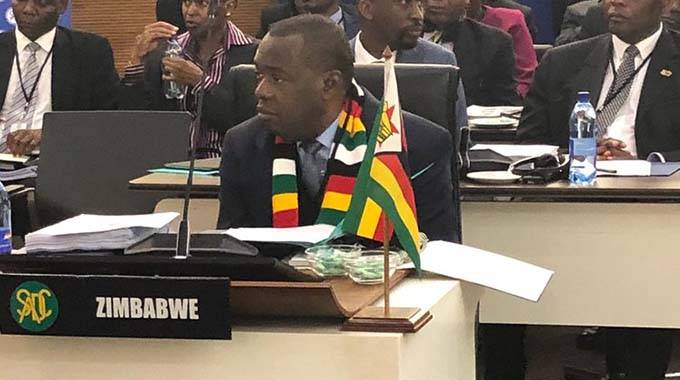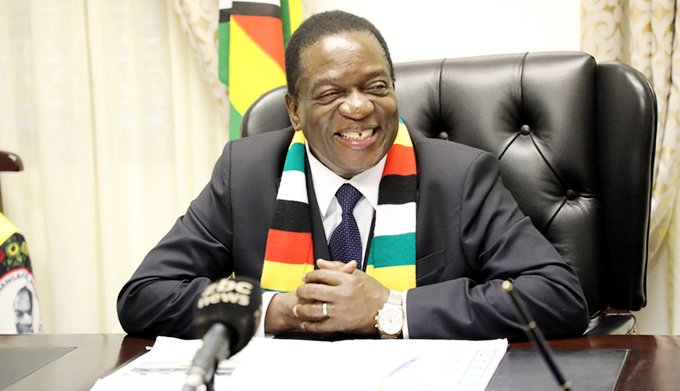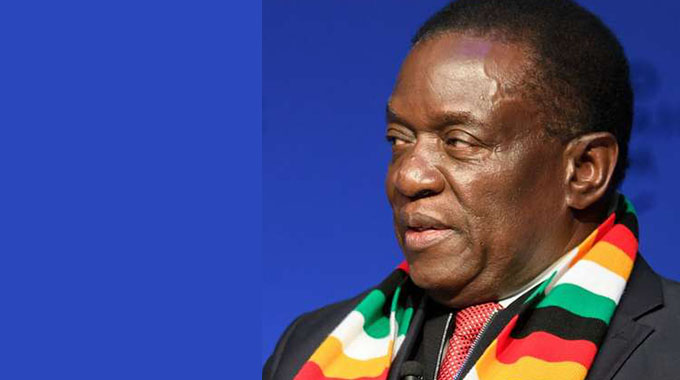Rebranding Zim’s embassies in ED’s economic vision

Keith Guzah Correspondent
The announcement of the Cabinet yesterday – making the team that President Mnangagwa will work with in the next five years – came as a huge relief as it signalled that real work on mending and developing the country is beginning in earnest, in line with the mandate that the five-year term the President and Zanu-PF got from the July 30 elections.
Perhaps one key thing to note from the Cabinet line-up is its continuity in some aspects – in particular the Ministry of Foreign Affairs – where Dr Sibusiso B. Moyo retained his portfolio as Zimbabwe’s man to the world, and trade.
This submission is anchored on what Zimbabwe’s foreign missions should do in line with the vision of President Mnangagwa, in particular his thrust of economic development. He has preached more business and less politics – and he took the world by storm declaring that Zimbabwe is open for business.
The minister responsible, Dr SB Moyo, is firmly rooted in this vision.
“Well, I have always indicated that our priority is on economic diplomacy and re-engagement, which basically means making outreach visits within the SADC bloc then the pan-African area. The idea is to re-engage, reassure our partners and deepen cooperation with those who have stood by us during difficult times,” said the minister in an interview on March 20, 2018.
That is very instructive.
Embassies, consulates and trade offices by their very nature must handle economic diplomacy. Their main focus should be centred on promoting the country, attracting foreign businesses to invest, encouraging technology transfer, and selling the country to the host nation as a safe tourist destination, among others. Economic diplomacy connects closely with political, public and other segments of diplomatic work.
It is also argued that economic diplomacy might be seen as a distinct component in diplomacy in general and how the approach to decision-making and negotiation on mainstream economic topics may diverge from more overtly political diplomacy.
It then makes the case that economic diplomacy has become more important with increased international economic interdependence or globalisation and the greater need to find negotiated solutions to challenges, such as stable financial systems, open trade and investment, or climate change, in order to achieve domestic policy objectives.
The Ministry of Foreign Affairs and International Trade thus has the primary responsibility to advise on, facilitate the execution of, and steer our foreign policy in furtherance of our domestic policy on behalf of the President.

Ever since his appointment as Foreign Affairs and International Trade Minister, Dr SB Moyo has made engagement and re-engagement his way of life as these pictures (above and below) demonstrate. “The idea is to re-engage, reassure our partners and deepen cooperation with those who have stood by us during difficult times,” said the minister in an interview on March 20, 2018.
Like in many other countries across the world, our foreign policy must be guarded jealously and executed with precision for it to bear fruits on the domestic front. Section 12 (1) (a) of our Constitution clearly states that the foreign policy of our country must be based on “the promotion and protection of the national interests of Zimbabwe. Furthermore, Section 90 (1) of the same Constitution puts the onus on the President to “uphold, defend, obey and respect this Constitution as the supreme law of the nation and must ensure that this Constitution and all other laws are faithfully observed”. Consequently, the President is the initiator, articulator and director of foreign policy.
Against this background, the nation’s eyes must be zoomed on the calibre and character of our representatives across the globe. Have they been up to speed in giving value to the country, irrespective of the challenges Zimbabwe faced against EU and USA sanctions?
In the last diplomatic “reshuffle” of 2013, 17 ambassadors were appointed, some of who were serving ambassadors while others were senior staffers in the Ministry of Foreign Affairs. There has not been any discernible change that these movements bore, prompting – as it should now seize authorities – the need to look at the efficacy of our missions.
Hon Paradza, while presenting before Parliament a portfolio committee report on Foreign Affairs and Industry in January this year said: “We have missions across the globe and we can use these missions to make sure that we re-engage, rebrand and assist in attracting FDIs and also to mobilise our Diasporans to make sure that they come and invest home.”
There are so many questions that quickly beg for answers: How much of Foreign Direct Investment can be attributed to the service of our missions abroad? Are most of our diplomats in the more than 40 diplomatic missions qualified to articulate clearly the new economic/transactional diplomacy now required by President Mnangagwa and being spearheaded by Dr Moyo? Are most of them not moribund and fossilised to the extent that they can no longer be the face of the Second Republic? Is it a statutory requirement that the Ministry of Foreign Affairs and International Trade should recycle the same so-called “career” diplomats (by moving them from one diplomatic posting to another) and/or promote ministry officials to diplomatic postings?
Just as President Mnangagwa promised the country to be ready for a lean Cabinet with a clear mission to support his vision, the nation expects a lean, articulate, dynamic, proactive, astute and raring to go team of hybrid ambassadors, high commissioners, trade attaches who understand clearly what the new dispensation is all about and who are not a drain on the fiscus.
Our current missions are bloated, ill-funded and not productive at all. If it were not for the President who since December 2017, chose to work around the clock and ensured visibility of an awakened giant, most countries would have confined us to the dustbins of history. Now, after the formalities and processes of elections – the fire needs to keep burning and there is need for a complementary team to buttress the standpoint of President Mnangagwa.

Dr Sibusiso B. Moyo
We need representatives with the get-up and go approach to business that are ready to hit the ground running. Too many agreements are gathering dust in many an embassy. We need to revisit all the BIPPAS signed and be ready to operationalise them. Equally, the nation wants to see the adoption and implementation of the many deals and protocols Zimbabwe has signed and are signatories to. The operationalisation of these agreements with make sense of the work that has been done in the diplomatic boardrooms.
The Second Republic is a new broom. A new broom sweeps clean. We need to start seeing the rewards of a clean, forward moving Zimbabwe. The front office of any given organisation is representative of its back office. Our diplomatic missions abroad need overhauling so that they represent the best of us and the vision of the President. We particularly do not need political figureheads when the overarching business is the business of business. Zimbabwe is open for business and the best way to show that to the world is having teams of energetic and switched-on bureaucrats who can do the job at hand. The time to do that is now.
Hon Dr Keith N. Guzah, PhD, is the Executive Chairman of KRMS (Pvt) Ltd, founder president of the National Business Council of Zimbabwe, past president of the AAG, empowerment activist and is currently studying for a law degree with a regional university. Email:[email protected]. www.nbcz.org.zw










Comments